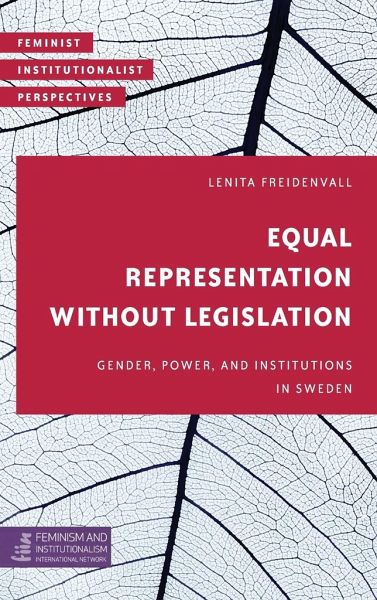
Equal Representation without Legislation
Gender, Power, and Institutions in Sweden
This book traces the path to equal representation between women and men in elected bodies, with a special focus on candidate selection process and the implementation of special measures such as party quotas.














